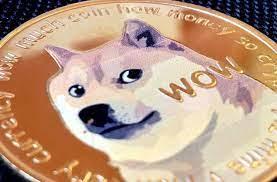ARE MEME COINS A PROFITABLE MOCKERY OF CRYPTOCURRENCIES?

From the flop of the "Let's Go
Brandon" token to the controversies surrounding Will Smith Inu, meme
coins are starting to draw suspicious reps, despite their popularity. Over
nearly a decade of existence, meme tokens have managed to carve out
their own thriving niche in the cryptocurrency industry. Most likely, they will
stay too.
Considering their cheap prices and
popularity, some argue that meme tokens
are a good entry point to crypto for newbies. But am I really? Or are they just
a popular mockery of the cryptocurrency industry right now?
In the beginning, there was the DUKE
The first and currently the most popular meme
coin, DOGE, was actually created to mock the barrage of “ Bitcoin Clones”
that flooded the market at the time. Formed in 2013 by two software engineers,
Jackson Palmer and Billy Markus, Dogecoin was invented and marketed as a joke:
a parody of Bitcoin. A satirical fusion of the rising cryptocurrency and a
popular internet meme called Doge that was based on the Japanese Shiba Inu dog
breed.
This was about four years after Bitcoin. At
this point, Bitcoin was well below $1000. Cryptocurrencies were not as popular
as they are now. And some of those who knew about Bitcoin were sceptical or
confused by the technology. So when Dogecoin was presented as a fun,
recognizable, community-based project with an unlimited supply, it was
immediately embraced by many.
From raising $30,000 for the Jamaican
bobsleigh team to donating $11,000 to build a well in Kenya, Dogecoin quickly
began to show just how community-focused it could be. It was a joke that
quickly grew on people, which the public received well. It was 2014. In 2015,
however, controversies began to arise. The creator of the coin. Announced was
taking an “extended leave” from the cryptocurrency community. He had doubts
about the crypto space and the new players he was attracting.
In general, the cryptocurrency space feels
more and more like a bunch of white libertarian brothers sitting around hoping
to get rich and pitching half-baked, buzzword-ridden business ideas that often
fail in the attempt to do so. Palmer said.
Palmer made an accurate diagnosis in 2015.
Little did he know, his experiment would degenerate into an incurable trend six
years later, beginning with the Shiba Inu coin.
Also
Read About: What is HOKK Finance?
The rise of the Shiba Inu (SHIB) and others
Dogecoin continued to evolve and attract
worldwide attention, especially as Tesla CEO Elon Musk sparked interest in the
coin. Soon Dogecoin's mascot, Shiba Inu, would not only be the face of
Dogecoin, but also the name of a new meme coin.
Shiba Inu (SHIB) also entered the
crypto-verse in August 2020 to tease a bit, but this time, about Dogecoin. The
second meme token in history was aptly dubbed the "Dogecoin
Killer." Although it was launched as a meme coin, it came with a 28-page
White Paper and one purpose that was to promote decentralized financial system
make the average person in control.
SHIB was one of the best performing
cryptocurrencies in 2021, recording a staggering 46,000,000% increase that
year. His rise has spawned many millionaires, including newbies with no
investment experience. And along with its production of millionaires came a
massive increase in other meme coins. Various “Inu” tokens have appeared
and new crypto entrants have been vying for a stake in an attempt to become the
next millionaire.
Shiba Inu's success has opened up Pandora's
box of rug-pull-pull-pull scams. The first was Floki Inu, whose original
developer kept most of the funds from him before the token was resurrected from
his community. After Floki Inu there were Floki Shiba, Baby Floki Inu and many
others. They have all been shaken or dumped by the whales to the max.
There always seemed to be an opportunistic
"crew" waiting to tap into a new pop culture trend by flipping a meme
coin. Take, for example, the Squid Game token. The Squid Game token was
created on the basis of a popular series on Netflix. SQUID turned out to be a
fraud rug throw that defrauded investors worth more than $3 million in November
2021.
Post Your Ad Here
Comments